Dr Tony Sewell: Race report chair slams honorary degree withdrawal
- Published
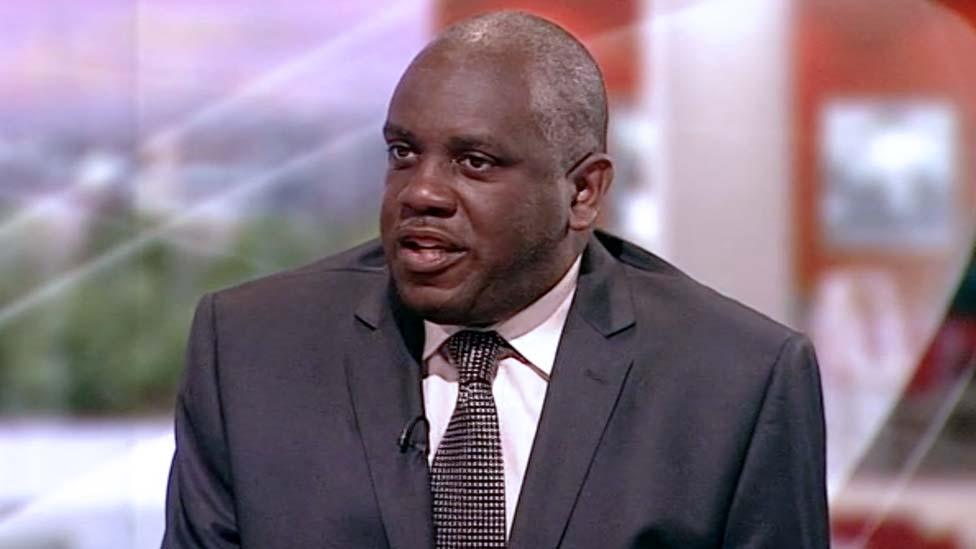
Dr Tony Sewell said the university did not want to "rock the boat"
A man who led a government inquiry into racial disparity has slammed a university for withdrawing his honorary degree over the review's "controversy".
Dr Tony Sewell chaired the review that found, external while there were racial disparities in the UK, there was no evidence of "institutional racism".
Some criticised last year's report, with one source calling it "tone deaf".
The University of Nottingham said given the "political controversy", the degree award was no longer appropriate.
The report was commissioned by the prime minister in 2020 in response to Black Lives Matter protests as people had discussions about race and racial disparities.
In the 258-page report, Dr Sewell said while "impediments and disparities do exist... very few of them are directly to do with racism" and said factors such as geography, family influence, socio-economic background, culture and religion had "more significant impact on life chances than the existence of racism".
It made several recommendations to the government for reform, which included more research into disparities in maternal mortality, for class B drug offences to be dealt with outside the criminal justice system and changes to police stop and search powers.
This has led to a new "inclusive Britain" action plan, which was announced on Wednesday.
But the report was criticised by some, including race equality think tank the Runnymede Trust, which said it was a "let down" and a denial of the existence of institutional racism.
'Vindicated'
Dr Sewell said having been selected by the university to pick up the honour in 2019, the offer was withdrawn in December.
"They said I was involved with controversy but the problem is, this controversy is changing the whole face of Britain," he said.
"I don't know what I did wrong. I have been vindicated.
"How can you argue when we are getting the government to agree that racism is a problem and a key issue in this society? That was our first job and we have done that."

The University of Nottingham said it had strict criteria for offering such degrees
Dr Sewell, who is an alumni of the university, said he had a "real PhD" from there and other honorary degrees so was "not interested in being a victim".
"The university made a decision because they didn't want to rock the boat and it is about money," he said.
"They don't feel they wanted consideration with the student body who are their paying customers. But many might be quite surprised that these decisions were taken in their name.
"You can't say it is controversial. Universities are meant to encourage that and their students going into debates."
A university spokesperson said it had strict criteria when awarding honorary degrees and it was "deeply unfortunate" the offer to Dr Sewell was withdrawn.
"The criteria preclude us from awarding them to figures who become the subject of political controversy," they added.
"Since making the decision to confer an honorary degree in late 2019, the university's honorary degrees committee noted that Mr Sewell became the subject of political controversy during 2021, and as such determined it would no longer be appropriate to award the degree."
They stressed the decision did not mean it was "making any judgement on Mr Sewell personally or expressing a view on his work".
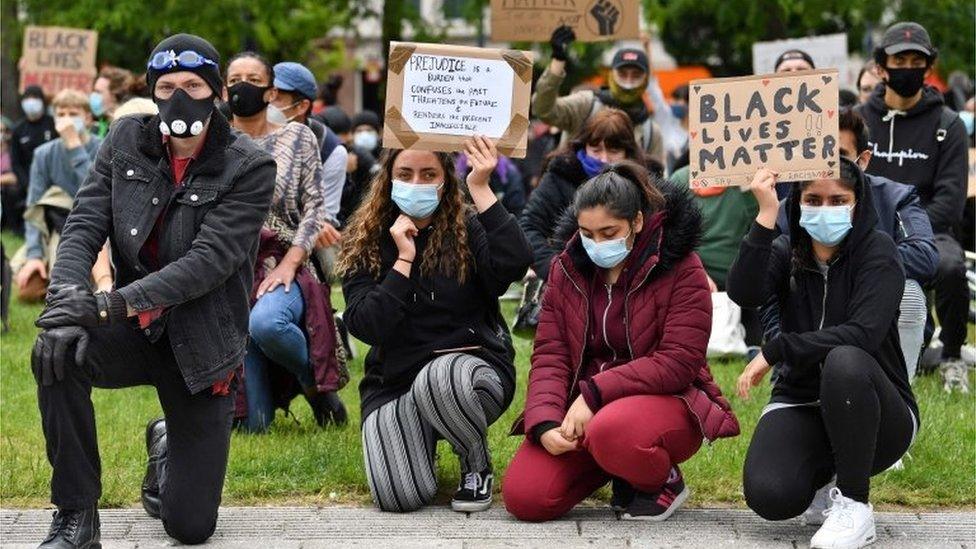
Black Lives Matter protests were held across the UK last summer
Dr Sewell, who chaired the Commission on Race and Ethnic Disparities, said the timing of the report was vital as people were still angry.
"People had an anger and all kinds of emotions before they got to the level of accepting," Dr Sewell added.
"And when the report came out a lot of people were still on that level and it took time to look at what we were doing, to look at the disparities in the country.
"I think some people thought we were somehow dismissive of that emotion."
Accepted recommendations
He criticised the lobby groups and media for their reporting of it and said therefore "we didn't get into the conversation that we needed to".
"The reality is that a year on, the government has listened. It has accepted all the recommendations and is addressing some of the issues," he added.
"Black women are beginning to find out why maternity deaths are high for them because of health disparities and health services are trying to get more black people involved in clinical trials to find specific issues for them.
"It's looking at how black boys are sent down the criminal justice system and the watchdog for the Race and Equalities Commission are going to be given more powers."

Follow BBC East Midlands on Facebook, external, Twitter, external, or Instagram, external. Send your story ideas to eastmidsnews@bbc.co.uk, external.
Related topics
- Published17 March 2022
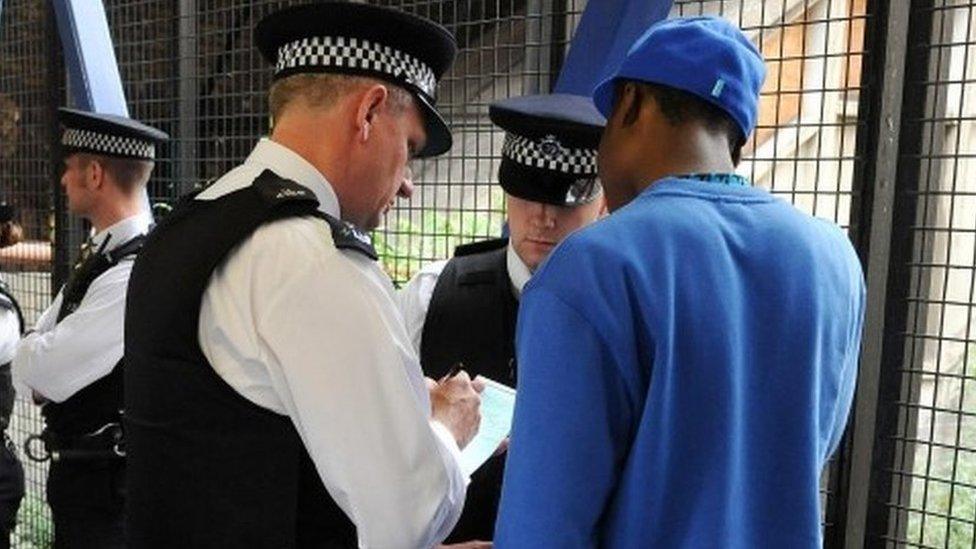
- Published3 April 2021
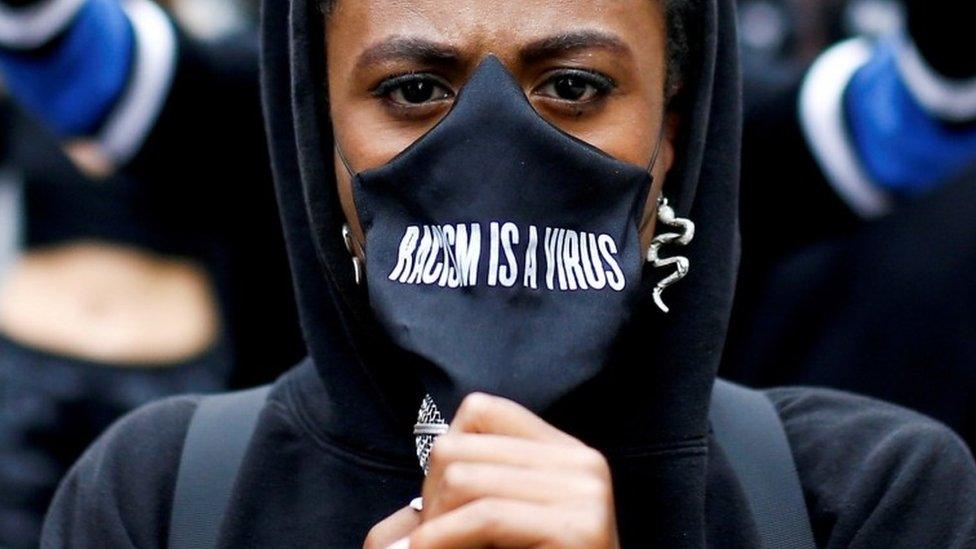
- Published31 March 2021

- Published31 March 2021
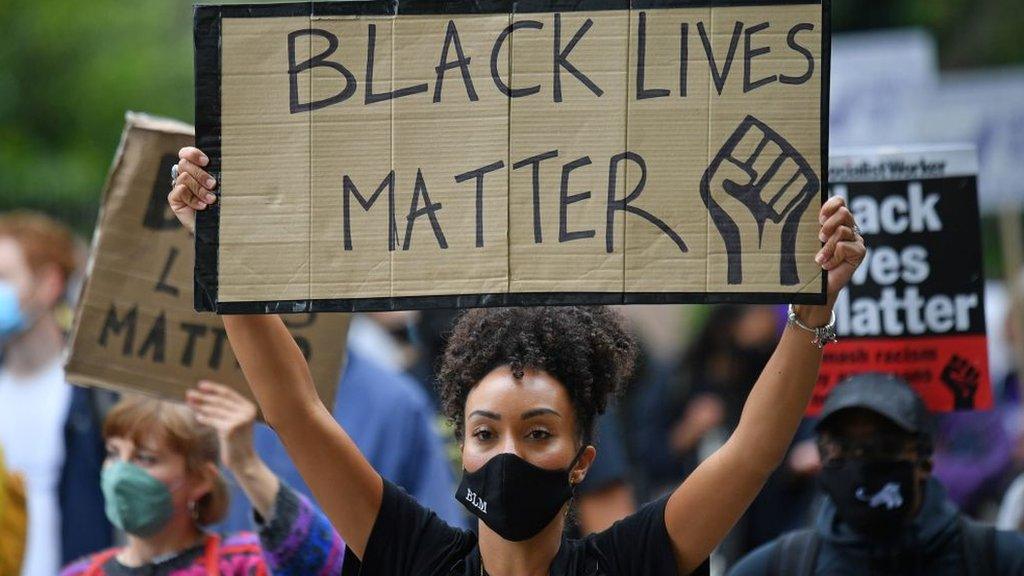
- Published31 March 2021
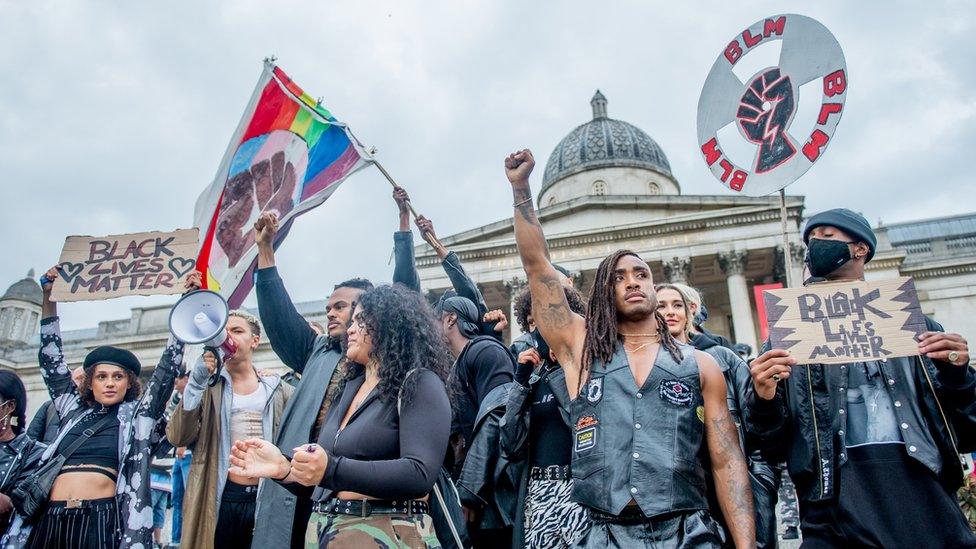
- Published31 March 2021
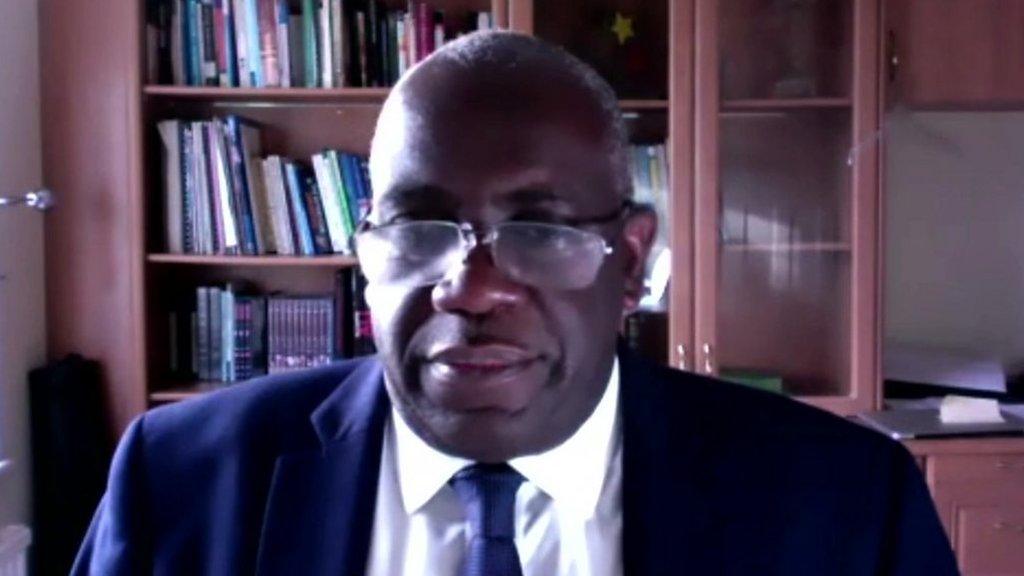
- Published16 July 2020
